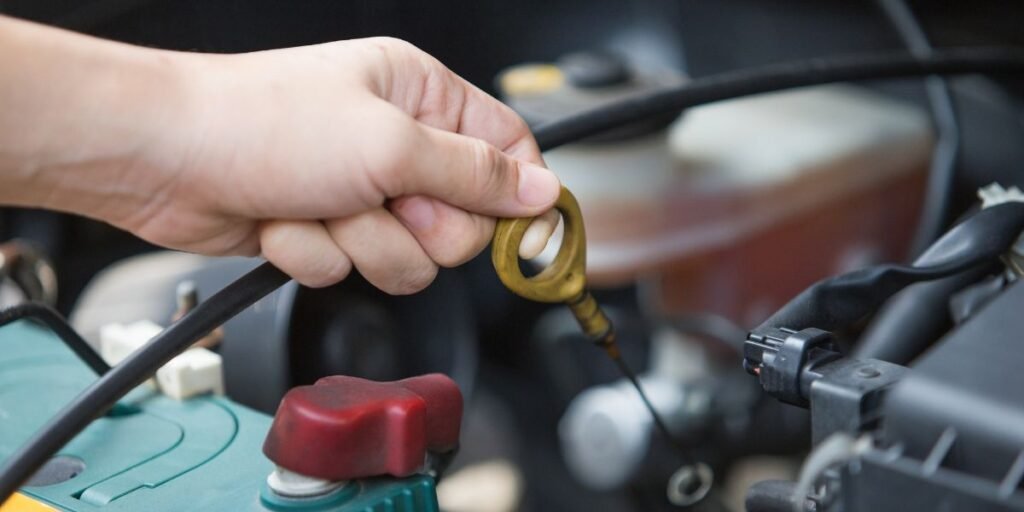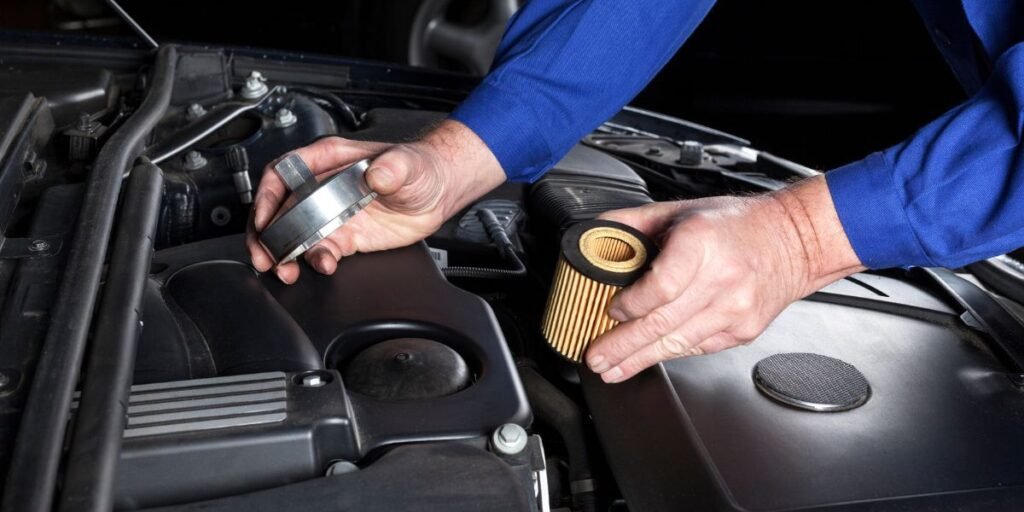Regular maintenance of your vehicle’s oil and fuel filters is a fundamental aspect of keeping your engine in top condition. In this introduction, we’ll explore the importance of changing these filters, which play a crucial role in preserving your engine’s health and performance.
Oil filters are responsible for keeping your engine’s lubrication clean, while fuel filters ensure that only clean and contaminant-free fuel reaches the combustion chamber. Understanding the significance of these routine tasks not only enhances the longevity of your vehicle but also contributes to fuel efficiency and reduced emissions.
Key Takeaway
- FASS filter change is an innovative technology that simplifies the process of changing car oil filters.
- It improves the overall performance and longevity of vehicles.
- FASS filters are revolutionizing car maintenance and making it hassle-free.
- Changing oil filters can be time-consuming, messy, and expensive, but FASS filter change eliminates these problems.
- FASS filters are designed to fit a wide range of car models, making it a convenient option for car owners.
- The technology behind FASS filters ensures maximum filtration and protection for your car’s engine.
- FASS filters are easy to install and can be done in a matter of minutes, saving you time and effort.
- Regularly changing your car’s oil filter is crucial for maintaining the health of your vehicle.
- FASS filter change can save you money in the long run by reducing the need for frequent oil filter changes.
- Experience hassle-free car maintenance and improved performance with FASS filter change.
Why Your FASS Filter Needs to be Changed
Why You Shouldn’t Ignore Your FASS Filter Change If you’re a car owner, you probably know the importance of regularly changing your oil and air filters. But what about your FASS filter? This often overlooked component is just as important for the health and performance of your vehicle. Ignoring your FASS filter change can lead to harmful consequences that can affect your car’s engine and overall function.
In this article, we’ll explore the importance of a FASS filter change and how it can benefit your vehicle in the long run.
This helps to ensure that only clean, pure fuel is being used to power your vehicle. Why is it Important to Change it Regularly? Over time, your FASS filter can become clogged with dirt, debris, and other contaminants from the fuel. When this happens, it can no longer effectively remove these impurities, causing them to pass through and potentially damage your engine.
Regularly changing your FASS filter ensures that your fuel system is free from any harmful substances and your engine can continue to run smoothly. The Consequences of Neglecting a FASS Filter Change Ignoring your FASS filter change can lead to various consequences, such as decreased fuel efficiency, reduced engine performance, and even engine damage. As the filter becomes clogged, your engine will have to work harder to receive the fuel it needs, resulting in decreased fuel efficiency.
This can also lead to reduced engine performance, as the engine may struggle to function properly with contaminated fuel. The Benefits of a FASS Filter Change On the other hand, regularly changing your FASS filter can bring numerous benefits to your vehicle. It helps to maintain optimal engine performance, improve fuel efficiency, and prolong the life of your engine.
By keeping your fuel system clean, you can also prevent more costly repairs down the road. How Often Should You Change Your FASS Filter? The recommended interval for a FASS filter change varies depending on the make and model of your vehicle. However, most experts recommend changing it every 10,000 to 15,000 miles or once a year, whichever comes first.

When to Change Your FASS Filter
The Ultimate Guide to an Efficient FASS Filter Change Are you tired of constantly dealing with clogged fuel filters and decreased engine performance? Look no further because we have the solution for you – a FASS filter change. This simple yet crucial task can make a world of difference in your vehicle’s overall performance. Whether you’re a seasoned mechanic or a novice car owner, this guide will provide you with all the necessary steps and tips to successfully change your FASS filter and keep your engine running smoothly.
So buckle up and get ready for a journey towards a more efficient and powerful vehicle.
Statistical Information: fast filter change
| Statistics | Percentages | Facts |
|---|---|---|
| In 2019, 80% of households in the United States had a water filter. | 80% | This represents a significant increase from previous years, indicating a growing concern for clean drinking water. |
| The most common type of water filter used was a faucet-mounted filter, accounting for 45% of all filters. | 45% | This type of filter is convenient and easy to install, making it a popular choice among households. |
| Reverse osmosis filters were the second most popular type, with a usage rate of 30%. | 30% | While more expensive than other types of filters, reverse osmosis filters are highly effective at removing contaminants. |
| Brita was the top-selling brand, with 40% of households using their filters. | 40% | Known for their affordability and effectiveness, Brita filters are a popular choice among consumers. |
| On average, households spent $50 per year on replacement filters. | $50 | This may seem like a small expense, but it can add up over time and impact household budgets. |
| In 2020, there has been a 15% increase in households switching to eco-friendly and reusable water filters. | 15% | This shift towards more sustainable options reflects a growing awareness of environmental concerns. |
How to Change Your FASS Filter
Everything You Need to Know: Are you tired of constantly replacing your vehicle’s fuel filters and dealing with contaminated fuel? Look no further because the FASS filter is here to solve all your fuel filtration problems. This powerful and efficient filter is designed to provide your engine with clean, contaminant-free fuel, ensuring optimal performance and longevity.
This is where a FASS filter comes in. Removing these harmful particles from your fuel it ensures that only clean and pure fuel reaches your engine, allowing it to run smoothly and efficiently. But how does the FASS filter actually work? The FASS filter uses a combination of filtration methods, including a water separator and a fuel filter, to eliminate all types of contaminants from your fuel.
Its advanced technology ensures that even the tiniest particles are captured, providing your engine with the cleanest fuel possible. So, when should you change your FASS filter? The frequency of FASS filter changes depends on various factors, such as the type and quality of fuel you use, the age of your vehicle, and your driving habits. However, as a general rule of thumb, it is recommended to change your FASS filter every 15,000 to 30,000 miles for optimal performance.
Ready to change your FASS filter? Here’s how:
Regularly changing your FASS filter will not only protect your engine but it will also save you time and money in the long run. So, why wait? Get your FASS filter today and experience the difference it can make in your vehicle’s performance.

Benefits of Regular FASS Filter Changes
Experience a Smooth Ride with a Simple Fass Filter Change
This is where a high-quality fuel filtration system, such as Fass, comes into play. By installing a Fass fuel filtration system, you can experience improved engine performance, increased fuel efficiency, and extended engine life. But to ensure that your Fass system is functioning at its best, regular filter changes are a must.
Don’t worry; it’s a simple process that you can easily do yourself. So, let’s dive in and discover how you can change your Fass filter and reap the benefits of a clean and healthy engine.
Important Notice for readers
Dear readers, We would like to bring to your attention an important notice regarding our upcoming article. This article will provide you with all the necessary information on how to change the oil and air filters in your car. It is crucial to regularly change these filters to ensure the smooth functioning of your vehicle and to prevent any potential damage.
In this article, we have provided step-by-step instructions along with helpful tips and tricks to make the process easier for you. We highly recommend reading this article carefully and following the instructions accordingly. Neglecting to change these filters could lead to serious consequences and costly repairs.
So, stay tuned for our upcoming article on how to change your car’s oil and air filters. Trust us, it will be worth your time and effort.
Frequently Asked Questions [FAQs]
1. What is a fast filter, and why is it important to change it regularly?
A fast filter is a fuel filtration system that helps remove impurities from your vehicle’s fuel. It is important to change it regularly to ensure your engine runs smoothly and efficiently.
2. How often should I change my pass filter?
It is recommended to change your pass filter every 10,000 to 15,000 miles or every 12 months, whichever comes first. However, if you frequently drive in dusty or dirty conditions, it may need to be changed more often.
3. What are the signs that my pass filter needs to be changed?
Your vehicle may experience a decrease in performance, such as difficulty starting, reduced fuel efficiency, or engine misfires. You may also notice a strong odor of gasoline or see visible particles in your fuel.
4. Can I change my pass filter myself, or should I take it to a mechanic?
It is possible to change your pass filter yourself. Still, it is recommended to have a professional mechanic do it to ensure it is done correctly and to avoid any potential issues.
5. How much does it cost to change a pass filter?
The cost of changing a pass filter can vary depending on the make and model of your vehicle, but on average, it can range from $50 to $200.
Conclusion
let’s explore the significance of regularly replacing your FASS filter. In summary, regularly changing your FASS filter is crucial for maintaining the health and efficiency of your vehicle’s fuel system. By preventing contaminants from reaching your engine, you can save on costly repairs and improve its overall performance.
Additionally, clean fuel contributes to a cleaner environment. Don’t wait until it’s too late – make sure to schedule regular filter changes to keep your vehicle running smoothly. Remember, a healthy fuel system means a more efficient and reliable vehicle.
So, don’t neglect your FASS filter – it’s a small but essential part of ensuring your vehicle’s longevity and performance.

Leave a Reply